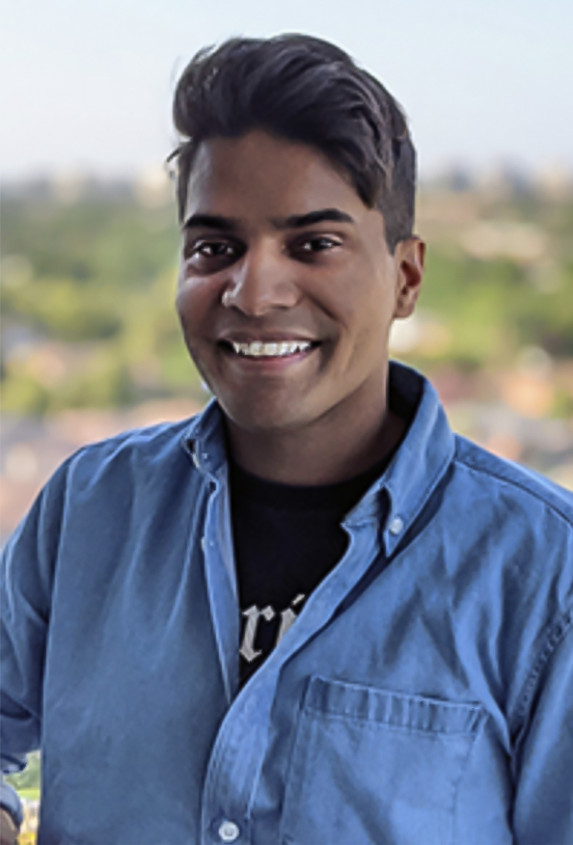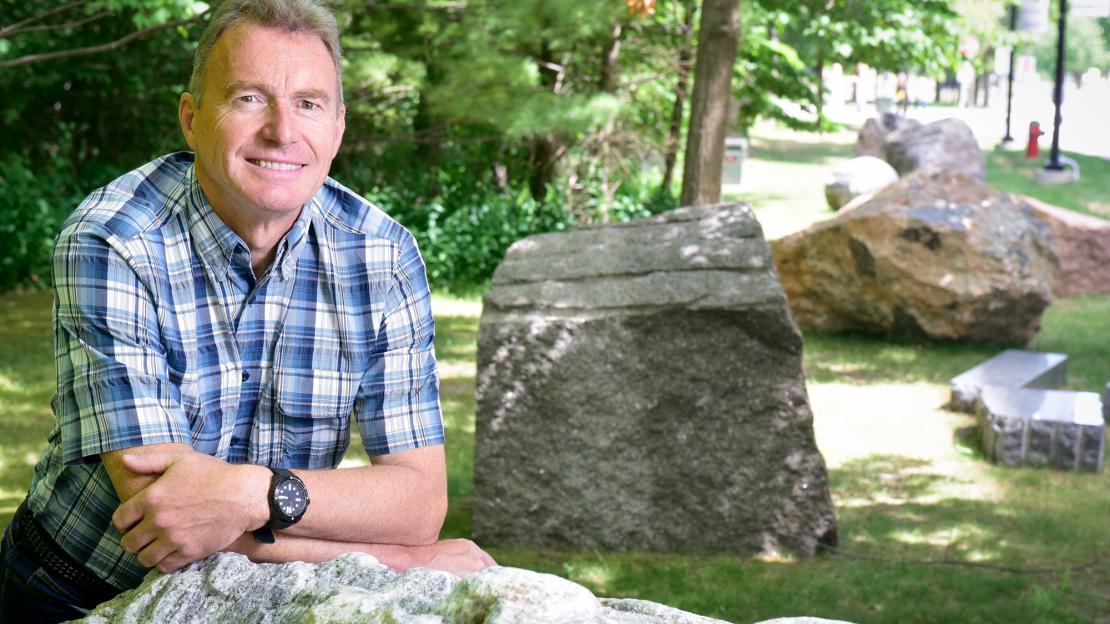For Nick Eyles, there’s no classroom quite like the great outdoors.
Long before the COVID-19 pandemic put a halt on travel and field trips, the U of T Scarborough geologist grappled with how to expose large numbers of students – particularly undergraduates taking introductory courses – to landscapes and environments, past and present, around the world.
He ultimately found a solution in technology. In a bid to “bring the field into the classroom,” he created Planet Earth Online, a collection of modules that use virtual field trips and interactive media to teach students fundamentals of geosciences, and Planet Rocks, a virtual guide to the province’s rocks, fossils and natural attractions.
Now, with support from the provincial government, Eyles is building a new virtual course to teach students about Ontario’s geologic evolution, complete with 360-degree imagery, documentary footage, satellite maps, interactive timelines and case studies.
This is something that’s updated – it’s current. And I think students are used to working with this sort of format now.
“The way to look at it this really is as a living textbook,” says Eyles, a professor in the department of physical and environmental sciences at U of T Scarborough who is working with experts at McMaster University and Guelph University on the project.
“With traditional textbooks, you have to wait for a new edition and pay a lot of bucks for it. This is something that’s updated – it’s current. And I think students are used to working with this sort of format now.”
Eyles’s virtual course is one of 32 U of T projects sharing about $1.8 million in funding through the Ontario government’s Virtual Learning Strategy, which aims to support innovation in digital learning and teaching. It’s part of a $50-million investment by the Ministry of Colleges and Universities to support the creation of digital educational content, equip students and faculty with the tools and skills to learn and teach online and foster the design of novel educational technologies.
Content created with the help of the funding will be shared at eCampusOntario, a centre of excellence in online and technology-enabled learning.
Susan McCahan, U of T’s vice-provost, innovations in undergraduate education, says the funding will help build on the digital curriculum innovation that took place at U of T during the pandemic and generate rich learning content for institutions across Ontario.
“The Virtual Learning Strategy funding will enable our community of educators to continue to develop and refine some of the best practices we've learned over the course of the COVID-19 pandemic,” says McCahan. “As we look ahead to a year where many in-person activities will resume, these timely projects will enable us to continue thinking about how to employ technology to best support our students, faculty and staff.”
McCahan says the number and diverse range of projects that have secured funding underline the enthusiasm of U of T faculty and staff in advancing digital pedagogical tools.

“These projects – exploring everything from the simulation of medical examinations and humanizing online teaching and learning to open educational modules on Islamic civilization – demonstrate the commitment of U of T to leading digital learning and technological innovation.”
Shane Sookhan, a PhD candidate in Eyles’s lab and a software developer and online learning co-ordinator in the department, says the virtual modules for Eyles’s course aren’t merely designed to present information, but to capture students’ imagination much like field trips do.
“Really, what you get out of field trips is hearing a good storyteller tell the story of what you’re seeing, and we don’t want to lose that online,” Sookhan says. “So, we don’t just put up a bunch of pictures of whatever – we try to tie them together into a storyline.”
Sookhan notes that interactive online courses are a great way to engage international and out-of-province students who are new to the area.
“It’s a good way to introduce them to their new surroundings and make them feel more at home.”
He adds that this kind of virtual course also caters to students with diverse needs and means.
“Meeting accessibility needs is something that can be an issue in a field like environmental science because you do need hands-on field experience and some students maybe can’t afford it or can’t physically attend,” Sookhan says. “So, creating these experiences and opportunities can [increase the number] of students who are able to take part.”
For Eyles, the virtual module, which will be made available for public access, is also designed to engage people beyond his own students.
“It’s not just a U of T science product. It’s something we hope will [have an impact] on people’s lives, says Eyles, who previously hosted CBC’s Geologic Journey II, a five-part Nature of Things series with David Suzuki, and has been awarded the Royal Society of Canada’s McNeil Medal and the Geological Association of Canada’s E.R. Ward Neale Medal for his public outreach.
“We want to change people’s outlooks and perspective of what’s below the street. You drive across Toronto and you’re really driving across a fossil ice-age landscape. There’s fantastic stories out there and we want to tell them and get them to a bigger audience.”
